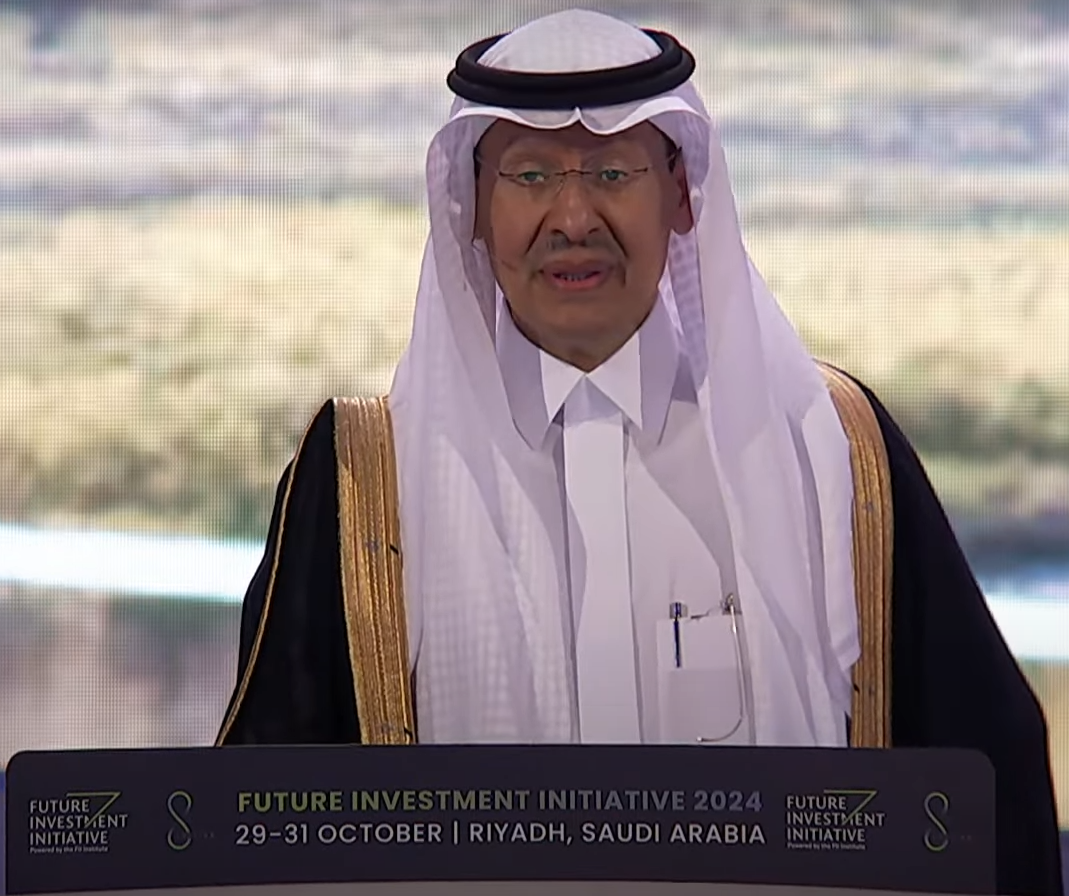Saudi Arabia transitioning to green circular carbon economy:FII
By Mike Gu in Hong Kong | chinadaily.com.cn | Updated: 2024-10-29 19:12

Saudi Arabia is undergoing a significant transition in the energy sector towards a cleaner economy, as highlighted by participants at the 8th Future Investment Initiative (FII) held from Oct 29 to 31 in Riyadh.
This year's FII is themed Infinite Horizons: Investing Today, Shaping Tomorrow and focuses on global investments aimed at addressing major issues such as artificial intelligence, robotics, education, energy, space, finance, healthcare, and sustainability.
During the conference, Prince Abdulaziz bin Salman Al Saud, minister of energy of Saudi Arabia, stated that Saudi Arabia is evolving from a reliance on oil to embracing all forms of energy, including low-carbon products. This shift represents a comprehensive economic diversification strategy. He emphasized that the country is moving from a linear carbon economy to a circular carbon economy, rapidly deploying renewable energy sources at scale.
In addition to having the largest grid in the Middle East and North African region, Saudi Arabia is reinforcing and expanding its grid to reliably integrate renewables and meet the accelerated demand growth, the minister stated. Furthermore, Saudi Arabia is transitioning from being an importer to an exporter of manufactured and engineered products, making substantial investments in electricity infrastructure to support its green growth initiatives, the minister added.
Yasir Al-Rumayyan, chairman of the FII Institute and governor of the Public Investment Fund of Saudi Arabia, said during the opening ceremony of the 8th FCC on Tuesday that FII has facilitated over $125 billion in deals over seven years. He projected that by 2030, economies including Saudi Arabia will play a significant role, particularly in infrastructure and technology.
Addressing the topic of sustainable growth, Al-Rumayyan pointed out that economic and social challenges, along with political tensions, hindered progress towards sustainability. He stressed the importance of focusing not only on short-term gains but also on long-term strategies that tackle global challenges. The interconnection between economic, social and environmental factors is essential, as the world is rich with potential, he said. For the energy transition to truly succeed both public and private sectors must collaborate, ensuring that policy and investment act as catalysts for change, he added.
























